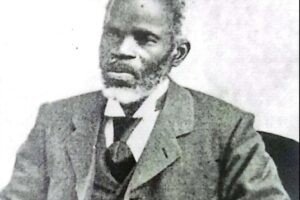Source: Africa Publicity
In the heart of Africa, a continent as vast and diverse as the ocean, lived a man named Kwame. Born in the bustling city of Accra, Ghana, Kwame had always been fascinated by the human brain. As a child, he watched his grandmother, Akosua, struggle with memory loss and confusion. Determined to understand and prevent such afflictions, Kwame dedicated his life to studying neuroscience.
Kwame’s journey began at the University of Ghana, where he excelled in his studies. He soon realized that preserving brain function was not just about scientific research but also about practical, everyday habits. With this knowledge, he embarked on a mission to educate people across Africa on how to keep their brains healthy and sharp.
His first stop was Lagos, Nigeria, a city known for its vibrant culture and fast-paced life. There, Kwame met Adebayo, a retired teacher who had recently started experiencing mild cognitive decline. Kwame shared with Adebayo the importance of staying mentally active. He introduced him to puzzles, reading, and learning new skills. Adebayo, who had always loved music, began learning to play the piano. Within months, his memory improved, and he felt more engaged and enthusiastic about life.
Next, Kwame traveled to Nairobi, Kenya, where he met Wanjiku, a businesswoman in her early fifties. Wanjiku was worried about the impact of her high-stress job on her mental health. Kwame explained the importance of managing stress through mindfulness and relaxation techniques. He taught her simple meditation exercises and encouraged her to take breaks and enjoy nature. Wanjiku found solace in daily walks through Nairobi’s lush parks, and her mental clarity improved significantly.
In the arid lands of northern Namibia, Kwame visited a small village where he met Amara, a young mother of three. Amara’s grandmother had been diagnosed with dementia, and she feared for her own future. Kwame emphasized the role of a balanced diet in maintaining brain health. He educated Amara and the villagers about the benefits of eating foods rich in omega-3 fatty acids, antioxidants, and vitamins. They began incorporating more fish, fruits, and vegetables into their diets, and soon, the entire community noticed a positive change in their energy levels and cognitive functions.
Kwame’s journey then took him to the picturesque highlands of Ethiopia, where he met Dawit, a shepherd. Dawit was concerned about his aging father’s memory loss. Kwame highlighted the importance of physical exercise for brain health. He explained how regular physical activity increases blood flow to the brain, promoting the growth of new brain cells. Dawit and his father began taking long walks through the beautiful Ethiopian landscape, and over time, his father’s memory and mood improved.
In the bustling markets of Dakar, Senegal, Kwame encountered Fatou, a vibrant woman in her sixties. Fatou loved socializing but often felt lonely after her children moved away. Kwame stressed the significance of social connections in preventing cognitive decline. He encouraged Fatou to join community groups and engage in social activities. Fatou started a weekly storytelling circle, where she and her friends shared tales from their youth. The laughter and camaraderie not only uplifted her spirits but also kept her mind sharp.
Kwame’s final stop was the island of Zanzibar, where he met Zuberi, a fisherman who had recently retired. Zuberi was worried about staying mentally active in his retirement. Kwame suggested that Zuberi pursue lifelong learning and keep his curiosity alive. Zuberi enrolled in a local history course and began documenting the rich maritime history of Zanzibar. This newfound passion gave him a sense of purpose and kept his mind engaged.
Through his travels, Kwame learned that preventing brain function deterioration was a holistic process. It involved mental stimulation, stress management, proper nutrition, physical exercise, social connections, and lifelong learning. Each of these elements played a crucial role in maintaining cognitive health.
Kwame returned to Ghana, filled with stories of success and transformation. He shared these stories through seminars, workshops, and radio shows, reaching thousands of people across Africa. His efforts inspired many to adopt healthier lifestyles and prioritize their mental well-being.
Years later, Kwame stood before a large audience at an international conference on neuroscience. He spoke about his journey and the people he met along the way. He shared how simple changes in daily habits could have a profound impact on brain health. His message was clear: everyone, regardless of age or background, could take steps to preserve their cognitive functions and live a fulfilling life.
Kwame’s work continued to resonate with people across the globe. His passion for neuroscience and his dedication to helping others left a lasting legacy. He proved that with the right knowledge and practices, the human brain could remain resilient and vibrant, no matter the challenges of aging.
In the years that followed, Kwame’s teachings spread far and wide, transcending borders and cultures. Communities across Africa embraced his holistic approach to brain health, and the positive impact was evident. Elders were more engaged, younger generations were more aware, and families were more connected.
Kwame’s journey was a testament to the power of education and the importance of holistic health. It showed that preventing brain function deterioration was not just a scientific endeavor but a human one, rooted in everyday actions and choices. Through his work, Kwame ensured that the wisdom and memories of countless individuals would be preserved for generations to come.
Have a press release, feature, article for publication? Send it to us via Whatsapp on +233543452542.



